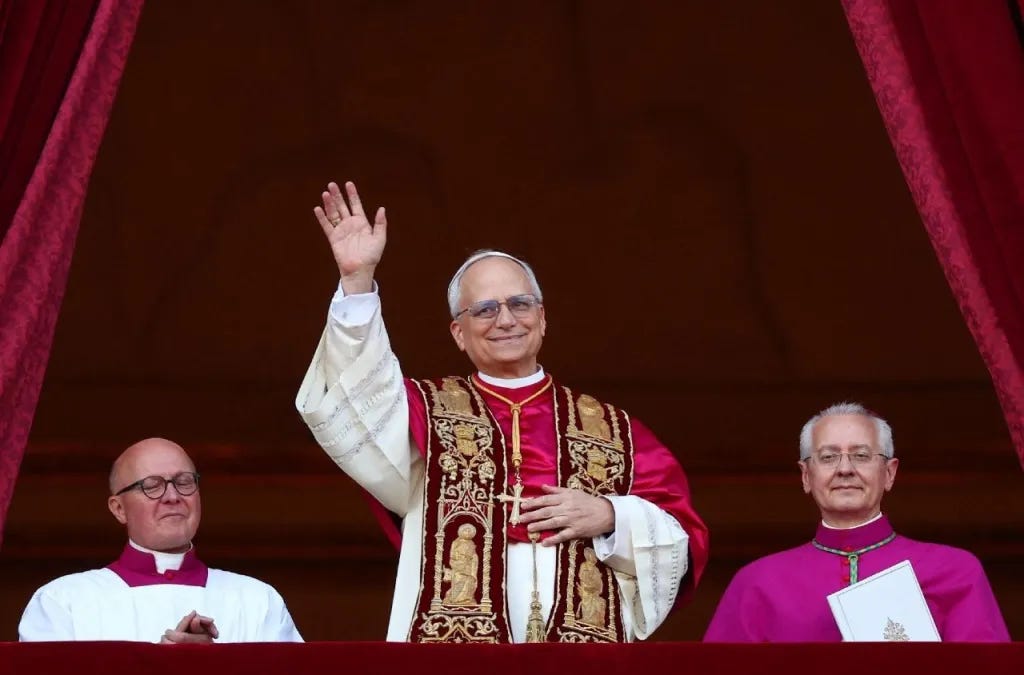The Sat Report: Leo and his Latin Mass Dilemma
A change in policy means that any Bishop asking for exemptions from Traditionis custodes will get them
Reports coming out of the Plenary Assembly of the Bishops’ Conference of England and Wales are that Pope Leo XIV will grant dispensations from Traditionis custodes to all the bishops who ask for them, without abrogating Traditionis custodes itself. The Pillar has a great report on this.
Traditionis custodes was promulgated more than 4 years ago, meaning that in Parish Churches where the Traditional Latin Mass continues to be offered have asked and have been granted two-year dispensations, and have had these dispensations granted twice already. In the waning months of the previous Pontificate, bishops, notably in the United States, bishops who asked for a further two-year extension have had these requests denied by the Dicastery for Divine Worship and the Discipline of the Sacraments (DDWDS).
I guess one could say new Pope, new policy, where it seemed like the previous policy was to start denying requests for dispensations to Traditionis custodes, the policy now is to liberally give these dispensations to all those who request it. Peter indeed fulfilling the commands Christ gave him; “Feed my sheep.” This is a major development, no matter how much Msgr. Enda Murphy, an official at the DDWDS, wanted to downplay the change in policy as no change at all.
I would also like to add that the bishops asking for these dispensations are not ideologues, but are driven by a zeal for souls, wanting to keep these faithful Catholics in parish communities, instead of ghettoizing them to the nearest gymnasium hall available taking bookings on a Sunday afternoon. There is a real need for this pastoral provision, and it seems obvious that the local ordinary would know his flock better than the undersecretary of an office in the Roman Curia.
So what is the end game here?
The three guiding motifs of his Pontificate, as Pope Leo XIV himself has stressed time and again during his nascent Pontificate are Peace, Mission, and Unity. The liberally granting of these dispensations, whilst maintaining the force of law of Traditionis custodes maintains a peace, prevents the cruel eviction of faithful Catholics from the Parishes that they have called home, thereby empowering the missionary work of these parishes, and fosters the unity that Summorum Pontificum brought.
There is a tiny, yet vocal minority of extremists that want to see the abrogation of the 1962 Roman Missal. The Pope placates these by keeping Traditionis custodes in force. These voices emanate from the progressivist Bologna School of the ‘hermeneutics of discontinuity’ of Vatican II, who view the continued existence of the Old Rite in the liturgical life of the post-Conciliar Church as an existential threat to their erroneous treatise.
This does feel like the beginning of the end of Traditionis custodes, a cruel and unnecessary document that doesn’t even address the problem it claimed to be solving. If the Vatican is going to give two-year extensions to all that ask for them, then in practice Traditionis custodes becomes a dead letter.
I can envision a point where the healthy decentralization of Synodality promised by Pope Francis, and championed by Leo, will see the matter of governing liturgical matters returned to the Diocesan bishop, a halfway house between Traditionis custodes and Summorum Pontificum. Thus, cutting the redundant bureaucratic step of petitioning Rome for something that will be granted.
The pointless micromanaging of Parish bulletins by Rome is over. The Pope clearly has more pressing concerns.


